Have you ever had a bumper crop of potatoes and could never get them to keep more than a month or two? With a proper cellar or vented basement, it’s fairly easy.
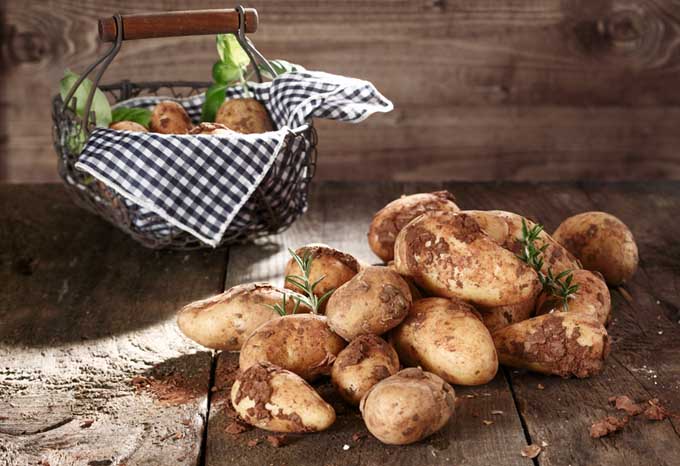
However, some people don’t have the luxury of having a root cellar, any interest in maintaining one, or live in the wrong climate for one to work properly. Therefore I’ve developed several work arounds to store my root crops.
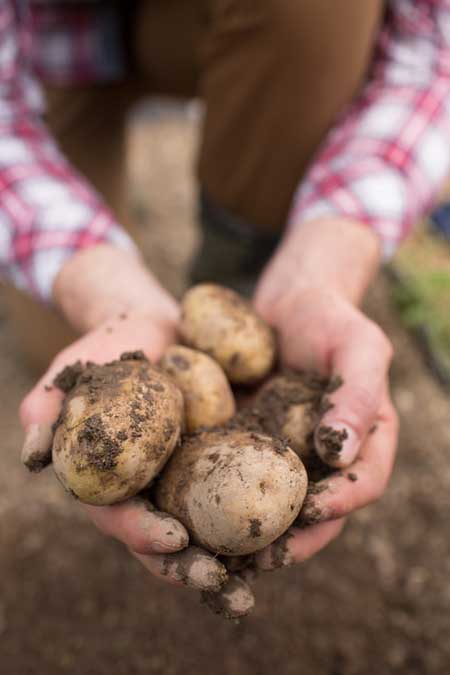
Most county extension offices agree that when housed in a dark location to prevent “greening,” unwashed potatoes stored at approximately 40F should last for many months, allowing you to harvest or purchase potatoes when they are plentiful and have them last throughout the winter months.
My Michigan basement is too damp and warm at the best of times to serve as an effective storage place for root vegetables like potatoes.

When I have a bumper crop available, I spend an afternoon preparing them in a variety of dried or frozen ways that I can easily reuse throughout the year which assists me with both eating healthier and saving some money in the kitchen.
Whole potatoes simply don’t dry or freeze well. Trying to dry them whole is merely an exercise in futility. They simply won’t dry completely if they’re whole.
Trying to freeze whole causes them to lose the texture and consistency that really makes them shine as a premier root vegetable, in my opinion. But several other methods of drying and freezing work quite well. Here’s how I do it.
Dehydrating Sliced and Diced for Long Term Storage
Dehydration provides the most space efficient storage method for long term storage of potatoes. I’ve found that dehydrated examples can be rehydrated and cooked in much the same way as raw.
I do not peel my potatoes for storage, but I do wash them free of all dirt and cut out any blemishes or sprouts. Once cleaned, I cut them into ¼- to ⅜-inch slices or dice them into 1-inch cubes.
Because I usually work with large quantities at one time, I have another pot that I set aside with salted water (a large handful for each gallon of water). As I cut the potatoes up, I place them in the salted water to sit until I’m finished cutting up everything. Once everything is cut up, I drain the salted water off and rinse lightly.
After everything is sliced or diced, I blanch for about 3 to 5 minutes in water at a full boil, then plunge them into ice water for a few minutes to stop the cooking process.
The trick to blanching without making a huge sticky mess is to add slices or chunks to the boiling water in batches.
Working quickly, I drop about 2 cups of slices or the cubes in one piece at a time so they don’t stick together. After about 3 to 5 minutes, I scoop them out with a strainer and immediately place them an ice water bath, letting them sit while I blanch the next batch.
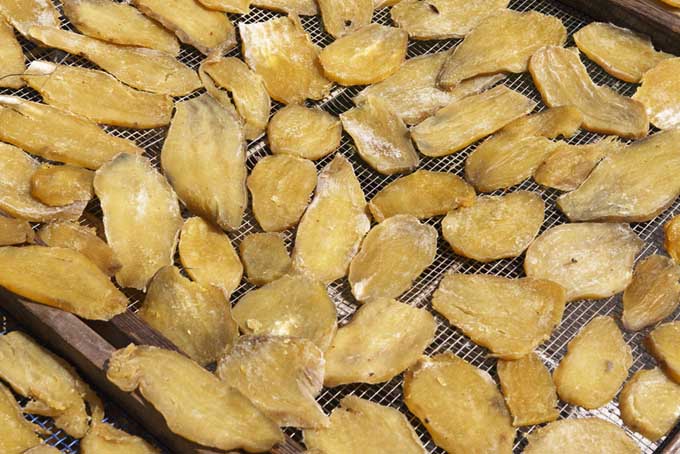
Once all they are cooked, I drain the ice water off completely and immediately place them on the food dehydrator trays, trying not to overlap pieces. Each food dehydrator has different instructions, so check your product’s manual.
They are usually dried enough after about 6 hours. Looking for Dehydrator? Read Foodal’s buying guide to find the best one to fit your needs (hint: we prefer the Excalibur brand by a large margin).
TIP
To prevent browning and discoloration after slicing, mix 1/4 lemon juice with 3/4 water in a food safe spray bottle and lightly spritz the potatoes with the solution.
This also works well with apples and other fruits and vegetables that tend to brown. Also, use a stainless steel knife or a mandolin slicer for cutting; carbon steel blades can also cause browning.
Once dried, I store the potatoes in plastic tubs in my cupboards until it’s time to use them. You can reconstitute slices by soaking them in water for about half an hour.
I don’t bother with reconstituting diced versions before I use them because I’m most often adding them directly to soups or stews where they will reconstitute on their own.
Freezing Twice-Baked for Long Term Storage
Potatoes baked whole can’t be frozen, though they are delicious freshly roasted in a cast iron skillet! They end up rubbery and unpleasant when defrosted and re-cooked. Twice-baked versions, however, freeze incredibly well and last for 4-6 months when wrapped in freezer paper or tin foil, or twice that long if stored in vacuum-sealed bags.
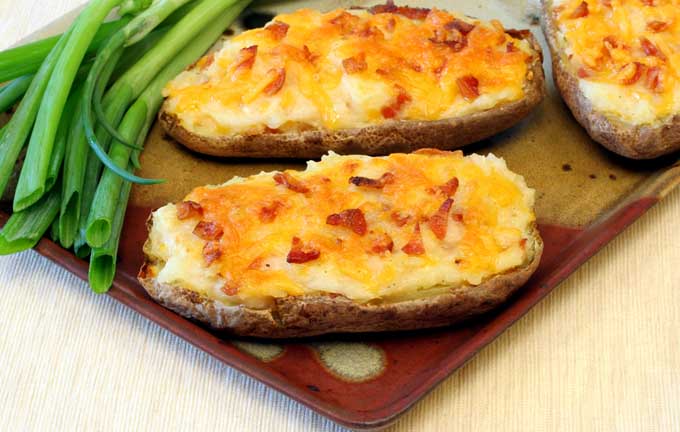
To make a batch for freezing, bake whole potatoes and then cut them in half. Scoop out the pulp of each half and mash it according to your favorite recipe, usually adding milk, butter, and seasonings, but no cheese.
Take the mashed pulp and refill the halves with it, and then wrap each potato in freezer paper or tin foil.
To reheat, I simply unwrap them and place them in a 425F oven while they’re still frozen and bake them for about ½ hour. At the half-way point during the reheating, I sprinkle them with a little cheese.
Freezing Mashed Potatoes for Long Term Storage
Mashed potatoes can be frozen so well it’s a wonder more people don’t use this storage method. I simply prepare my favorite recipe using a potato ricer and add milk, butter, seasonings, and without any cheese and then cool completely.
Once cooled, I form them into patties packaged in between layers of freezer paper and seal the layers in a zippered plastic bag.
Stored this way, potato patties keep for 4 to 6 months without suffering any flavor loss. If they’re vacuum sealed, I find that they last for twice as long.
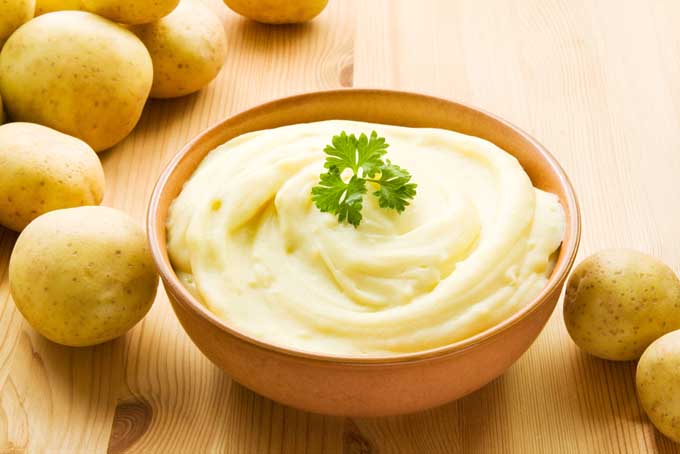
I never thaw them for reheating. I simply brown them in a pan with a little oil and butter or bake them in a 375F oven for about 30 minutes or until they’re heated through.
If I run out of time to make potato patties, I line an old cake pan with freezer or parchment paper, being sure the paper covers the entire bottom and sides of the pan.
On the other hand, if I’ve got plenty of time, I might be ambitious enough for pre-made Italian potato gnocchi, and freeze that for the future!
Then I spread the mashed potatoes in the pan and place the entire thing in the freezer for a few hours until everything is solid.
Once they are frozen, I use the paper to lift the block out of the pan. I place the frozen block, paper and all, a zippered plastic bag with a label that tells me the date it was frozen, which pan I used, any cooking instructions I’ll need. My label looks something like this:
- Mashed Potatoes
- Today’s Date
- Bake at 375F for 30 minutes
As with the patties, mashed potatoes frozen this way keep for 4 to 6 months without suffering any flavor loss. If they’re vacuum sealed, I find that they last for twice as long.
To reheat, I simply find the pan that’s listed on the label and place the frozen block directly in the pan without the paper. It then goes into the oven still frozen and baked for the time I’ve listed on the label at the appropriate temperature I’ve noted.
Once they have thawed, enjoy as is, or spread them on top of your favorite recipe for shepherd’s pie.
Freezing as French Fries for Long Term Storage
I knew that it was possible to freeze potatoes as French fries, but I had a little trouble figuring out the right way to go about it. After several failed attempts that resulted in mushy blobs, I finally called my county extension office and got the answer I needed: the key is partial cooking and shorter freezer storage time.
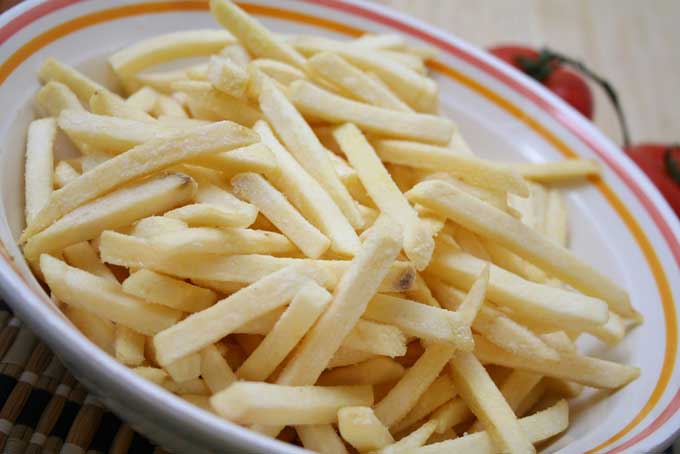
I wash my potatoes and leave them with the peels on, then use my French fry cutter to cut them up into fries. You can also use a knife to cut them into ¼-inch strips.
Once cut up, soak the fries in ice cold water for about 5 minutes, drain the water off, and set them on a towel to dry while you heat up frying oil. Fry for about 4 minutes at 360F, until the fries are partially cooked but not browned at all. Remove the fries from the oil and drain them well.
After I drain them, I like to use an old, brown paper bag to remove as much oil as possible. Once drained, I spread the fries on a cookie sheet and place them in the freezer until they’re frozen solid and then package them in freezer bags for no more 4 to 8 weeks at the longest.
To reheat, you can fry them still frozen in oil at 360F until golden. I prefer to bake them at 475F in the oven until they’re golden brown and heated through. It takes about 30 minutes.
Don’t forget to Pin It!
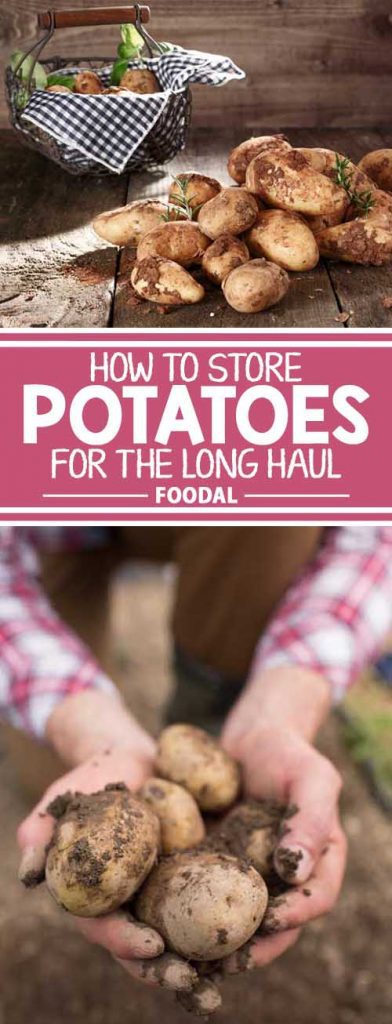

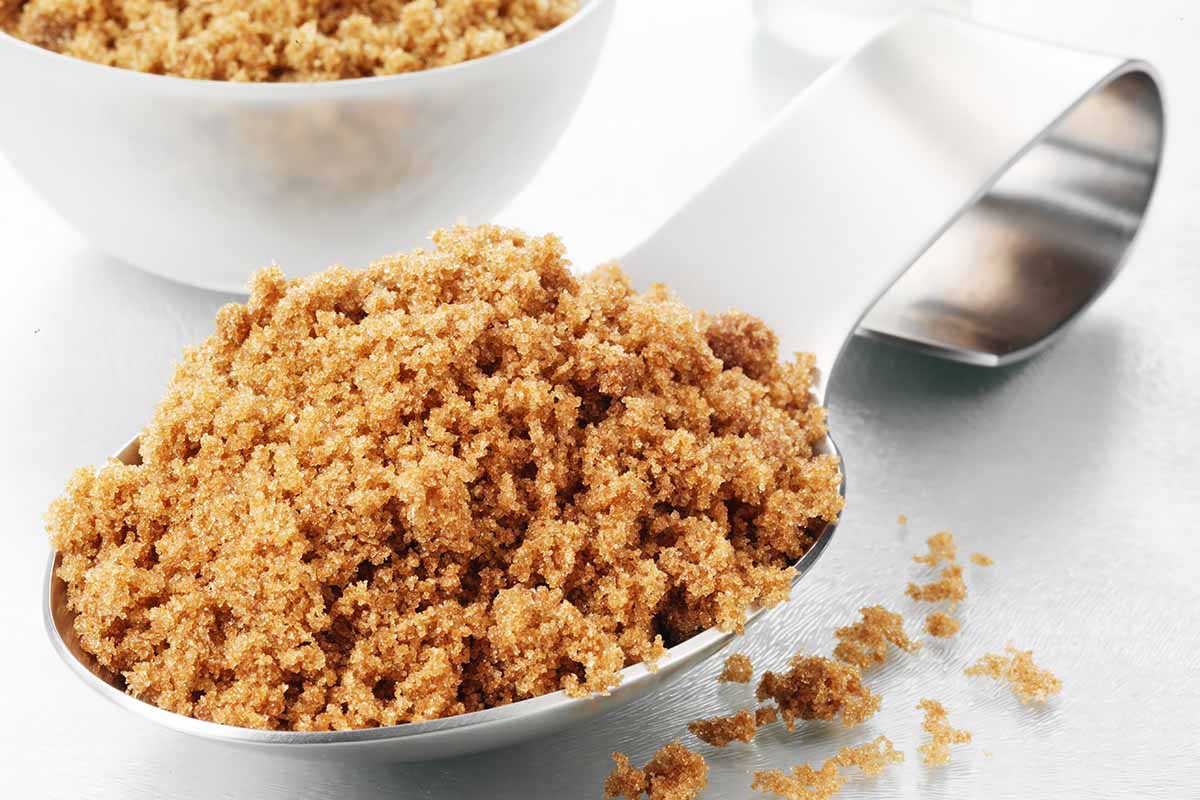
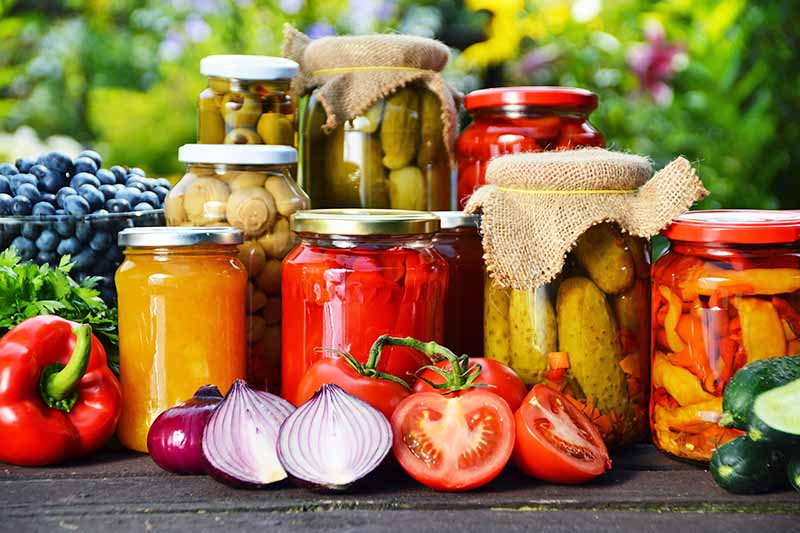

I live in Georgia as a child I can remember digging potatoes. I will admit to this day I would dig them all day long if I could. It’s just so darn fun to root around in the dirt. Then feeling that first potato then another, and another. As for keeping them after the harvest is all together a different story.
My husband, and I actually tried freezing potatoes once whole, and peeled it was awful. We now keep them in a wire produce basket in a dark closet it works well.
I had no idea you could freezer partially cooked fries at all! That seems like a great way to use up potatoes which haven’t got long left. I have previously frozen mashed, with excellent results.
Some good alternatives to storing potatoes as sometimes I can’t eat them all and I don’t like to eat too many carbohydrates in one go. I am more of a fan of the mashed potato storage method and then to add some butter and milk to it once it’s defrosted.
I hate waste and like to use up potatoes as soon as I can and make dishes with them and freeze them, like a gratin or a cottage pie.
I WISH I had that kind of space to store my pickling adventures & potatoes. That would be a dream come true. Alas I have a small wicker basket which is almost too small for an 8 pound bag. I’m not the biggest fan of freezing things but using a vacuum sealer might be where I am going wrong. It seems regardless of how I freeze or in what kind of container I freeze it in I lose out on texture &/or flavour.
I haven’t had much luck trying to freeze various types of potatoes. The double baked work great, and these other tips and tricks will definitely come in handy. I’m learning that for freezing anything, it seems like it works better if you freeze things individually on a cookie sheet or tray, and then package them for deep freezing.
I should bookmark this page for handy reference.
My most favorite way to freeze potatoes is by making my own shoestring hash browns. I start by par boiling potatoes cut in half to remove some starch. I then shred them with a box grater and store them in freezer bags for flat freezing. I really appreciate these other ideas. I don’t have a green thumb myself but I do buy large bags at Costco of my favorite Yukon Golds and always seem to have more than we can use. I had never even thought of freezing them mashed. Perfect time saver!
Great tips here! While I love potatoes, I’ve never bought more than I need to use. So, I’ve never had to face storage issues. What I’m having difficulty with is choosing the potatoes. I know it’s a bit off topic, but I’d like to grab the chance to ask. I normally buy potatoes in the supermarket. But for some reason, I’m not very lucky in my choice of potatoes. I would normally pick great looking potatoes, but when I slice them – there’s some rut. I wonder there’s a telltale sign that could help me pick healthy potatoes?
Anyway, thank you! I hope my question isn’t much an intrusion.
I used to store potatoes in the traditional method when I was living at my old house because we had the space. I stopped when we moved to our new house because the pantry was just too small and the basement was too crowded. It never occurred to me that I could dehydrate the potatoes. I think I’ll try that.
Some great ideas here. When I buy potatoes, they never lost longer than a couple of weeks. They tend to grow roots most of the time and go green! So there are some goo ideas here that I will try because it is a waste having to throw them out all of the time!
I am from Grand Rapids, Michigan and I have the same problem with my damp basement. My parents still live there and everytime I visit I see potatoes rotting down there. I often make them twice-baked potato skins while I am there. I think next time I will just make a lot of extras and freeze them. I also think just dehydrating them sounds like a great way to have some potatoes ready to go whenever they want to do some American fries.
While I did enjoy this article, and commented previously, I forgot to add something that just dawned on me. I’d love to know if you have a recipe and some tips for making homemade potato chips. A restaurant we occasionally frequent makes them and they are so good.
I’ve tried making them at home, but they are only okay. I’d love to find out how to make them better. That’s another good way to use up some potatoes too.
There were times my grandma would have a bumper harvest and she’d load me up with a full sack of potatoes to take home but as much as i love potatoes and dream about them, one mouth versus a huge sack of potatoes is next to impossible, being philanthropic was the next thing on my mind and that’s what i’d do because my methods of preservation would backfire, am glad to have stumbled upon this article… next bumper harvest i’ll know what to do 😉 …don’t worry generosity won’t lose its lustre 🙂
Not having a basement or a cellar, either one has made it necessary for me to look for ways to store potatoes. I buy groceries in bulk to save money. Potatoes are no exception. Until now the only way I knew was safe to store than was as mashed potatoes. As you can imagine, my freezer is full of mashed potatoes. Thank you so much for these tips!
I never knew you could dry your potatoes out like that. After reading this article I can see where I am going wrong. I now know how to preserve them and I will do so correctly in future. As soon as I see them on special again, I will buy a couple of bags and prepare them for storage. I like to buy as much as I can in bulk. This information is going to prove very helpful.
I came here looking for ways to preserve them this is great! I’m planning to move to an area that is 20+ minutes by car to a grocery store from an area <2 minutes walking from a 24 hour one!
I have always only purchased 'tater fresh and never stored them because of the news reports of how toxic they can be if forgotten about (for a really long time though, seriously google it.)
Won't have that luxery so have to adapt.
I remember the old days of digging up potatoes and having to prepare them for storage. As the baby of four children, my parents always had me the one diggin’, while the other boys either carried or chopped. I could never remember the way we actually stored out potatoes, but it always came out fresh, tasty, and just the best home-cooking potatoes I’ve ever had. It brings back memories of those garden days.
These are some great ideas. I don’t have a cellar, and they don’t last in the humidity here for long, so I usually only buy a small bag or even loose potatoes, rather than buying in bulk. After reading this, I might consider changing that. I love how organized you are, even labeling the packages with which pan you used/should use. I had no idea you could freeze twice baked potatoes, and your potato patties got my mouth watering.
This is definitely more than helpful for me as I live in Florida and do not have the luxury of a basement to store potatoes. I use a vacuum sealer at my home as well to keep certain food items fresh, especially when I’m making a falafel mix and do not have the time to deep fry them right away. I’ll keep this stashed away for future reference; I absolutely love my spuds.
I love all these ideas about how to store potatoes. I dont have a food dehydrator at home but it looks very useful when trying to store food. Who would have thought to partially fry french fries to freeze them?
I’ve only been reading this site for a few days and I’ve already learned so many new ideas! Most of your content seems American oriented, and having Chinese parents and living in New Zealand, it’s a real change from what I usually do.
Barely any houses here even have basements or any kind of underground storage that could work like a root cellar. Usually, I just put all my root vegetables in the fridge and cross my fingers and hope they don’t sprout or turn green. Next time I get hold of a huge amount of potatoes, I’ll try some of these methods. I like the look of the twice baked ones, the topping looks delicious!
I know about frozen fries so I’m not sure why it never occurred to me to freeze potatoes! I believe they can also be hot canned (pressure canned).
Storing them unwashed is so important if you are just keeping them. As someone who grows & sells potatoes it irks me when I see washed potatoes. They go green or rot very quickly that way unless they’ve been sprayed.
This is good for me to know because I usually just put them in the cabinet and don’t use them fast enough. I’d rather have them last longer since I don’t always get to them right away.
Nice, I was waiting for a preserving guide that focused on potatoes and the likes! I hate buying a lot of vegetables at once because they never get used before they go bad, I never learned how to store those properly.
This article is very interesting. When I first lived on my own I made the mistake of storing potatoes in the same container and onions. I soon found out that was a big mistake. My potatoes started to get soft within a few days. After reading this article I will rethink how I store them!
I never thought about freezing mashed potatoes before. But then again, I’ve never had a bumper crop as mentioned in the article. I’ve always just gone to the grocery store and picked up what I think I might need. I did have a problem recently, with a couple of green potatoes. I googled it and found out that it can be toxic to eat the green part. It said cutting the green part off and using the remaining part is fine.
I remember one time I tried to freeze my entire basket of potatoes, and they were all freezer burnt when they came out. 🙁 You can guess how well it went down with the guests.
I just have a question about the spay technique, when I tried to use it it didn’t really work as the potato were off in a few weeks. Is it really only for short term storage, as the last technique seemed a bit complicated and I like to keep my veg whole. Do you have any suggestions?
This article just gave me another reason to consider growing some potatoes in my garden. Using a dehydrator would probably be the best way I could keep some potatoes stocked in my household. My kids love potatoes and I know they won’t be tempted to mess with dehydrated potatoes as much. I can never keep a nice stock of frozen French fries, hash browns, mashed potatoes in the freezer or just a nice stock in the pantry at that matter. Oh well, at least they’re eating good nutritious foods and that’s what matters the most.
These are excellent tips on storing potatoes! Honestly, I wish I had came across this article months ago. My local farmers market had 15 pound bag for $6 a bag, I could have stocked up even more so than I did. As it is, I have resorted to freezing the mashed, but now I’m tempted to invest in a dehydrator, just to store these babies! They’re a hit in this household, we have some type of spud at least 4 days a week.
Great post about how to keep potatoes longer. I appreciate this because my grandparents have a garden and give me so many potatoes sometimes I do not have room for them..but I don’t want to waste food. I never thought of dehydrating them..this is a great suggestion. I am going to give my grandma this idea..knowing her I am probably the one who is a bit late in knowing this. Nevertheless keeping potatoes in a crate is what I usually do and they keep for about a month. Very valuable information..thanks.
These are very interesting ways on how to store your spuds. I would of never thought to try some these methods out. I’m going to have to give this a shot, once I get some potatoes from the garden in the fall. Thank you so much for this valuable information. This will help me out in the long run since I don’t have access to a cellar.
I love potatoes and this is great advice on different ways to keep them for longer periods of time. I have often wondered how people keep their root crops and I know that my grandparents used a cellar for that purpose. My parents didn’t do that but would keep theirs in the basement for a couple months. It wouldn’t stop them from sprouting a little bit, but those could be easily removed in the cleaning process. Our basement was cold year round and dry, so various root vegetables and tubers often stayed good well into the late fall and early winter months.
I have a nice little family story about potatoes.
One of my aunts told me that she absolutely love the taste of frostbitten spuds. Apparently, it makes them taste kind of sweet.
When she was a child she always hoped that her mother would leave them out too long and they would get frostbite.
I’m lazy I guess. I have always just bought a bag of potatoes an d tossed them into the pantry or cupboard. If they turned they went in the compost.
This article solved a huge problem for me! My significant other loves french fries. In fact, I would venture to say he would choose french fries over me if given the chance. He loathes the store bought variety in a bag, as do I, but after many failed attempts at pre-cutting and freezing fries, this article has given me the recipe for success! Pre-frying before you freeze them really did the trick! Now, I can quench my love’s thirst for french fries without having to cut potatoes almost every single day at lunch time. This has saved a lot of time and I can freeze any potatoes before they go bad when our gardener friends bless us with extras!
Your potato patties are such a clever idea, and I must admit it had never even crossed my mind that you could freeze mashed potatoes. Did you know that the Inca’s actually used to freeze dry potatoes over 1500 years ago? Of course without access to the Andes, these tips are great for those of us with only a freezer available! Thanks for the great ideas!
When I was growing up, mom used to keep the potatoes from our garden in the basement and my granny used to keep theirs in the cellar. I can still remember the distinctive odor of the root cellar every time I ventured down there. We didn’t grow any potatoes in the garden this year and I sure do miss digging and then cooking fresh potatoes straight from the garden. I sure didn’t know about freezing potatoes, but it sounds like a good idea for those who lack storage space.
I wish I would of come across this article awhile ago. I am a fairly clean housekeeper, I clean daily, usually 2-5 hours a day. Recently, we noticed an awful smell in the house and we could not pinpoint where it was coming from. We finally realized that is was an unused sack of potatoes that were left in a dark cabinet. Absolutely gross, though I never knew how to properly store them before!